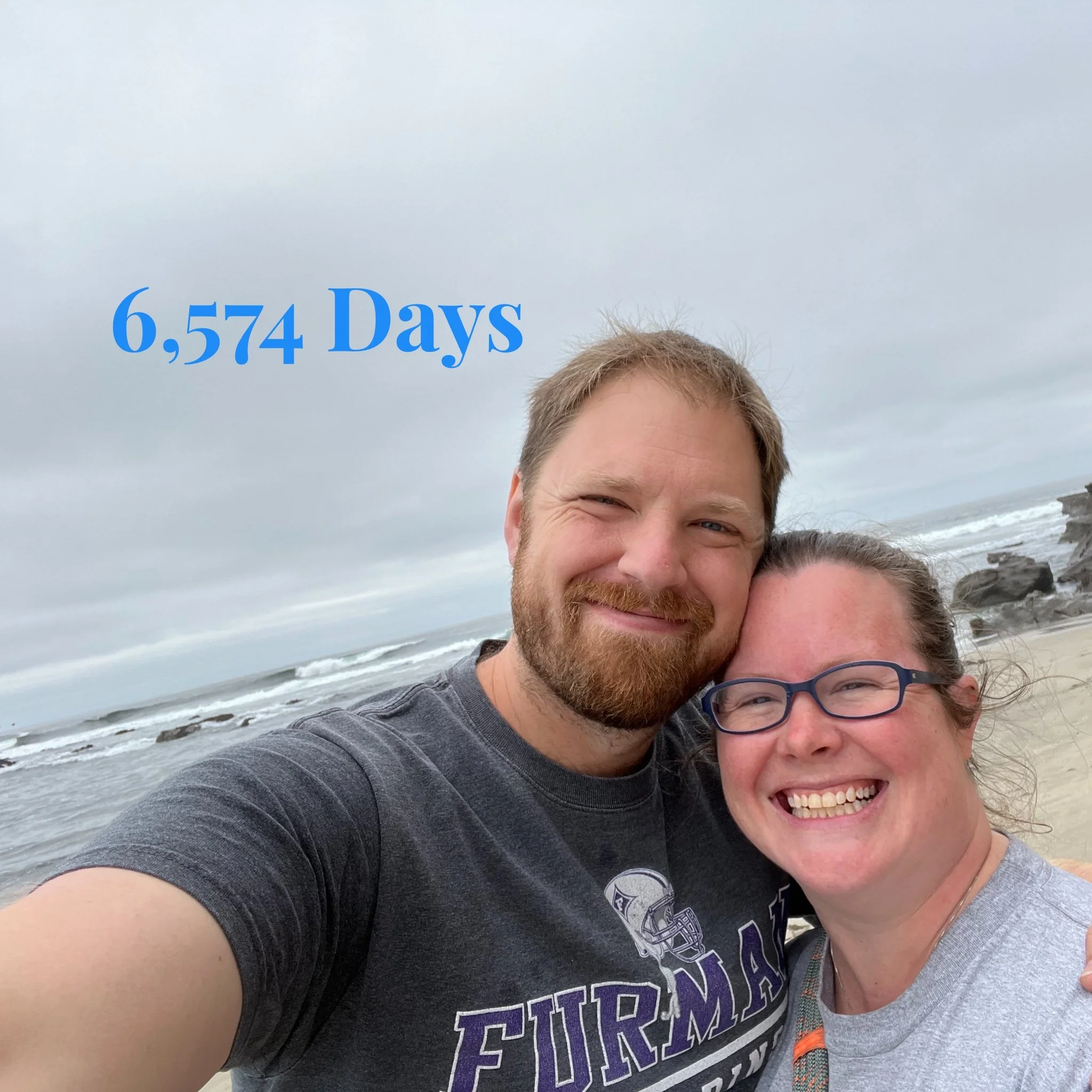I am 20 years old. It’s my birthday and the waning days of my sophomore year in college. In a fit of boredom that only occurs when you cross the socially acceptable randomness in college with a solid decade of watching David Letterman, I’m curious about what would happen to different objects if I throw them off the top balcony of our dorm building.
There’s this girl that I like. I think she likes me too. I’ve never been super confident about such things, but I’m pretty sure about this. I run up and tell her about my juvenile science experiment and she readily agrees to help me. I grab her hand as we scamper to the stairs. It’s the first time I ever hold her hand. We’re still a few months away from dating. Yet I still remember the electricity of holding E.A. Ferree’s hand for the first time.
We are 40 years old now and today is our 18th wedding anniversary. We have been married 6,574 days. At some point this fall, we will hit the tipping point in our lives where we have been together as a couple longer than we have not. Which seems wild. I wonder what that 20 year old kid would think if you told him that he’d still hold that girl’s hand 20 years later and even then he would feel electricity. And he would feel home.




